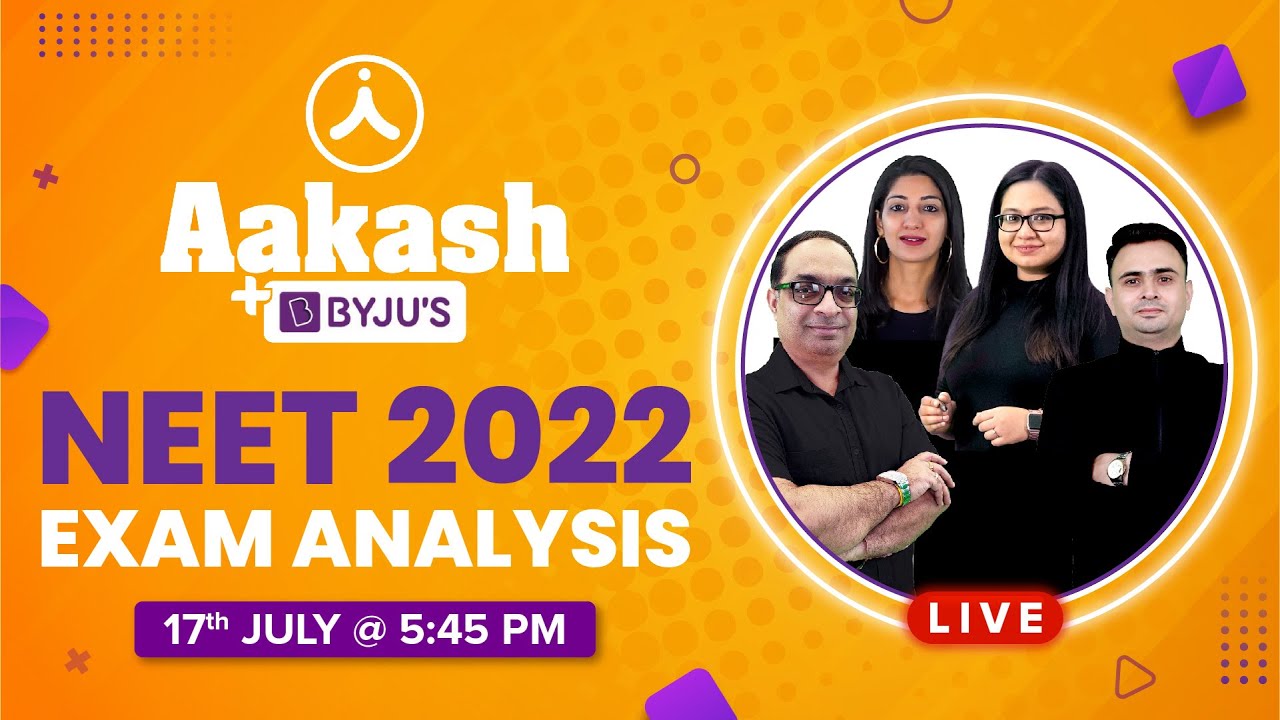Are you one such student who believes in early preparation for any test? That is a great thought! It only comes with loads of benefits. With proper guidance and effective strategy, you are sure to crack NEET 2023.
The one common streak witnessed in all successful people is the knack of planning and its timely execution. In this article, we break down the 2-year approach in detail for you to prepare for the country’s biggest entrance test, NEET.
Trending: NEET 2023 exam
Preparation Strategy For NEET 2023
If you have just cleared class 10 exams and are eyeing to become healthcare professionals, you must be aware of each and every aspect that goes behind its successful preparation. Ask yourself these questions provided below. Keep these pointers in mind while planning:
1. Do I Need Guidance?
This is the right stage to identify if you require help to crack NEET or it is something you can crack by self-studies. Guidance must be sought at the right stage. Once you have an answer to this question, get started with your preparation.
See: How Do I Know If I need Coaching for NEET?
2. Should I Start early?
Yes. One of the most common FAQs on NEET is – “what is the best time to start preparing for NEET?”. The answer to this question is – the ideal time for NEET preparation is a few days after one has appeared for class 10 exams. A complete 2-year duration, with thorough dedication to crack NEET, can assure you the best results.
3. Devise a customized study plan
Centre and customize yourself around a study plan that assists you in reaching your goal as opposed to framing an unrealistic one. Your plan must support your schedule and learning pace. Customize it considering the following pointers –
- Curriculum to be covered, it’s effective segregation
- Availability of time
- Difficulty level
- Prioritizing topics
- Performance metric and analyzer
3. Syllabus and exam pattern knowledge
Students taking up NEET must be well aware of the syllabus of NEET 2023 as well as the format of the NEET paper. With ample time in hand, analyse and examine these aspects of the paper thoroughly to chalk out an effective plan for 2 years.
To start off, NEET covers class 11 and class 12 syllabus of NCERT. A detailed list of chapters are as provided below:
NEET Syllabus – Physics
| Class 11th Syllabus | Class 12th Syllabus |
| Physical world and measurement | Electro statistics |
| Kinematics | Current Electricity |
| Laws of Motion | Magnetic effects of Current and Magnetism |
| Work, Energy, and Power | Electromagnetic induction and alternating currents |
| Motion of systems of particles and rigid body | Electromagnetic waves |
| Gravitation | Optics |
| Properties of Bulk Matter | Dual Nature of Matter and Radiation |
| Thermodynamics | Atoms and Nuclei |
| Behavior of Perfect Gas and Kinetic theory | Electronic Devices |
| Oscillations and wave |
NEET Syllabus – Chemistry
| Class 11th Syllabus | Class 12th Syllabus |
| Some basic concepts of Chemistry | Solid state |
| Structure of atom | Solutions |
| Classification of Elements and Periodicity in Properties | Electrochemistry |
| Chemical Bonding and Molecular structure | Chemical Kinetics |
| States of Matter: Gases and liquids | Surface Chemistry |
| Thermodynamics | General principles and Processes of Isolation of Elements |
| Equilibrium | P Block elements |
| Redox reactions | D and F block elements |
| Hydrogen | Coordination compounds |
| s-Block elements (Alkali and Alkaline earth metals) | Haloalkanes and Haloarenes |
| Some p-Block elements | Alcohols, Phenols, and Ethers |
| Organic Chemistry – Some basic principles and techniques | Aldehydes, Ketones and Carboxylic Acids |
| Hydrocarbons | Organic compounds containing Nitrogen |
| Environmental chemistry | Biomolecules, Polymers, and Chemistry in everyday life |
NEET Syllabus – Biology
| Class 11th Syllabus | Class 12th Syllabus |
| Diversity in the Living World | Reproduction |
| Structural organization – Plants and Animals | Genetics and Evolution |
| Cell Structure and Function | Biology and Human welfare |
| Plant Physiology | Biotechnology and its applications |
| Human physiology | Ecology and environment |
Exam format of NEET is as follows:
| NEET Exam Pattern | |
| Number of Questions | 200 questions (MCQs) out of which 180 must be answered |
| Total Marks | 720 |
| Exam Mode | Offline mode only (pen and paper test) |
| Type of questions | Objective type questions with 4 options and 1 correct answer |
| Duration of Exam | 200 minutes (3 hours and 20 minutes) |
| Subjects | Physics, Chemistry, Botany and Zoology |
| Language | The question paper is asked in 13 languages English, Hindi, Assamese, Bengali, Gujarati, Malayalam, Kannada, Marathi, Odia, Tamil, Telugu, Urdu and Punjabi |
| Marking Scheme | 4 marks are awarded for each correct answer |
| Negative Marking | 1 mark is deducted for each wrong answer |
4. Approach in class 11 towards NEET 2023
Students aiming to crack NEET and are at class 11, are highly suggested focussing on building concepts at this stage. Equally, divide your time between all subjects and thoroughly ensure the basics are clear. Conceptual clarity is a must for cracking NEET. This enables advanced information on topics to be well understood which would be further covered in class 12.
Additionally, make note of the following points:
- NCERT should be mastered for NEET, make it your go-to
- Start preparing concisely and to the point notes. Use flashcards, spider grams, infographics to make learning interesting and fun
- Assemble NEET material for both classes 11 and 12 – a blueprint/weightage of chapters, syllabus copy, notes, textbooks, study material, etc
- Decide on seeking assistance in the form of coaching for NEET
- Get hold of study material of NEET from reliable sources/printed notes or any modules to strengthen the core
- Plan to study on weekdays and reserve weekends for revisions and practice tests/question paper resolving
- Weekly/monthly assessments to analyse progress
- Do not step back from seeking assistance for clearing doubts or gaining conceptual clarity
- Occasionally indulge in extracurricular activities. Take care of self
More: NEET Study Tips For Class 11 aspirants
5. Selection of books
Studying from the right source is as important as devoting time to study. NCERT must be your base. 75-80% of the question paper has questions appearing either directly or indirectly from NCERT. For a few questions which are still inclined to NCERT while being beyond its scope, refer to the related sources, which are as provided below.
| Physics |
|
| Chemistry | Physical Chemistry
Organic Chemistry
(For reaction mechanisms)
Inorganic Chemistry
|
| Biology |
|
6. E-learning for NEET 2023
In addition, make use of technology to prepare for NEET. There are innumerable options to effectively prepare for NEET.
- Conceptual clarity – to understand concepts clearly, make use of online platforms offering doubt solving sessions. Watch video tutorials for a long-lasting impact
- Revisions – the best active recalling resource has to be Flashcards. It is an effective recalling/memorization tool
- Time table – install various apps to frame lucrative plans, which timely reminds you of your next step in the routine
- Practice tests – schedule weekly/daily plans to solve and practise tests
- Readily accessible online mock tests provide a detailed summary of your performance based on different metrics once it is taken. Subscribe to such channels to enhance performance
- Use spider grams, flowcharts, etc. to understand complicated topics. Refer to various tools/options enabling easier remembrance of diagrams/figures
- Look for portals providing question banks to solve questions from a range of topics every day
Note: While using e-learning options/portal, ensure content and syllabus used is updated and prescribed by the NTA (National Testing Agency), the regulatory body for NEET.
Things to avoid while preparing for NEET 2023
- Do not mistake/undervalue NCERT for its simplicity. It is the base for questions of NEET to be framed
- Particularly, when one has 2 years in hand, it seems like there is a lot of time in hand. That is only far from the truth. Once you get hold of the syllabus and an idea of the complexity of NEET, you will start sensing its seriousness. Without any delay, start preparing now. There is a lot to catch up on.
- Do not multitask. Focus on one aspect of preparing at a time
- Avoid referring to too many sources for the same bit of information
- Refrain from prioritizing one subject for NEET, which usually is Biology for its ease. Physics and Chemistry hold equal weightage
- Do not get bogged down if consistently scoring low at those mock tests
All in all, one must stay motivated all through the journey. Remember, consistency is key. With sheer dedication, the right approach and proper guidance, you are sure to emerge victoriously.
Recommended:
| NEET Full form |
| How To Start preparing for NEET from class 10? |


Byjus you are really great. I do love studying from Byjus. And your understanding of students’ mental conditions is absolutely stunning.